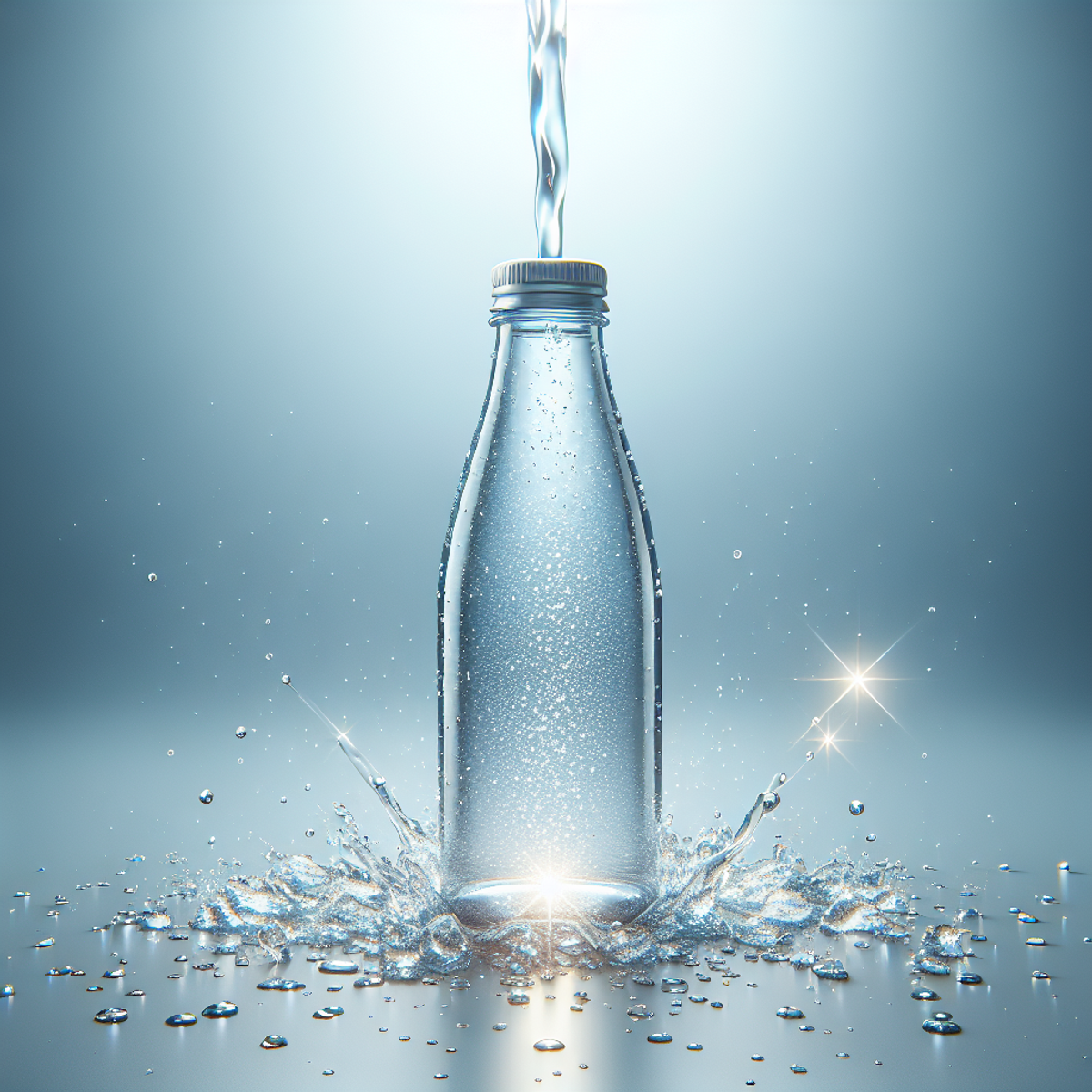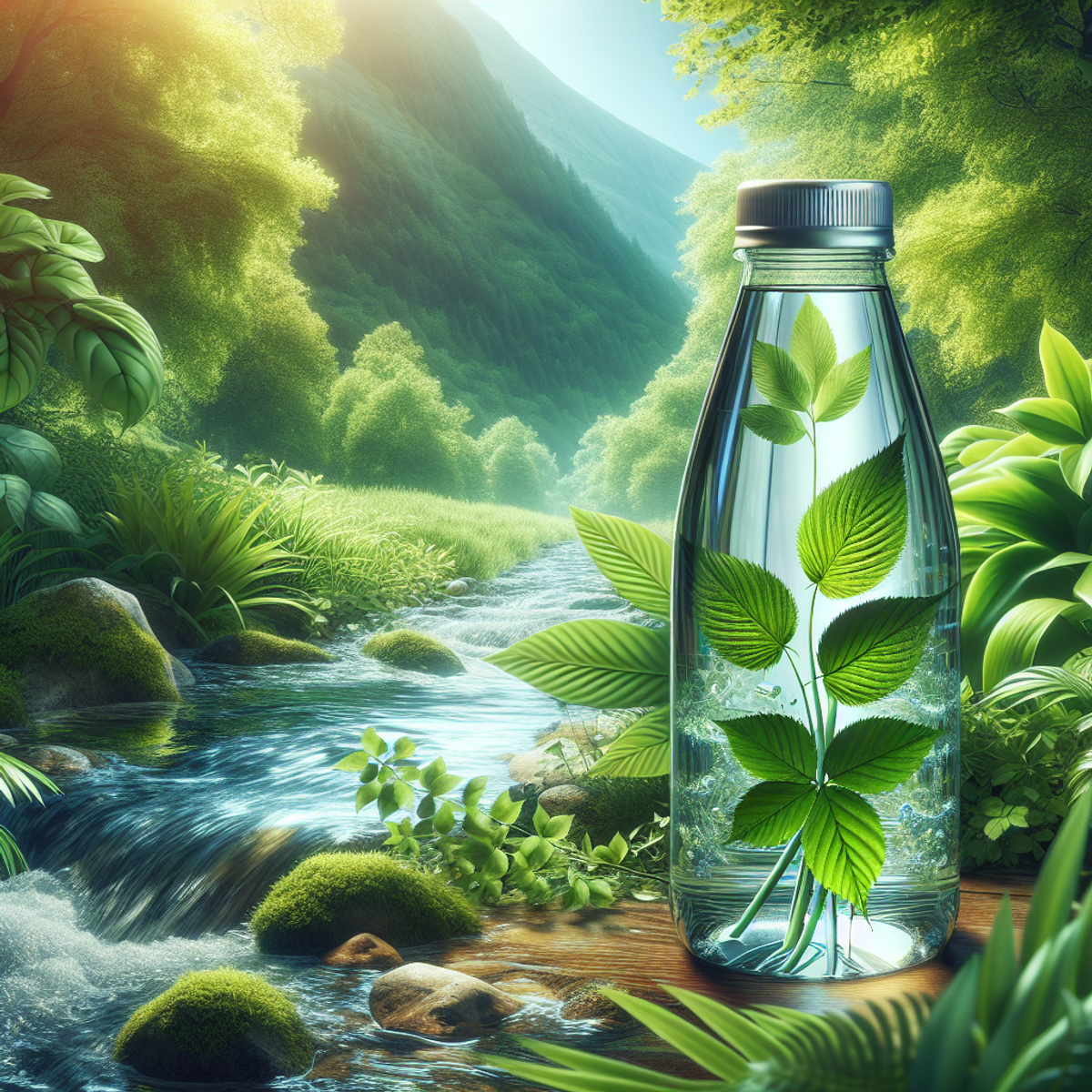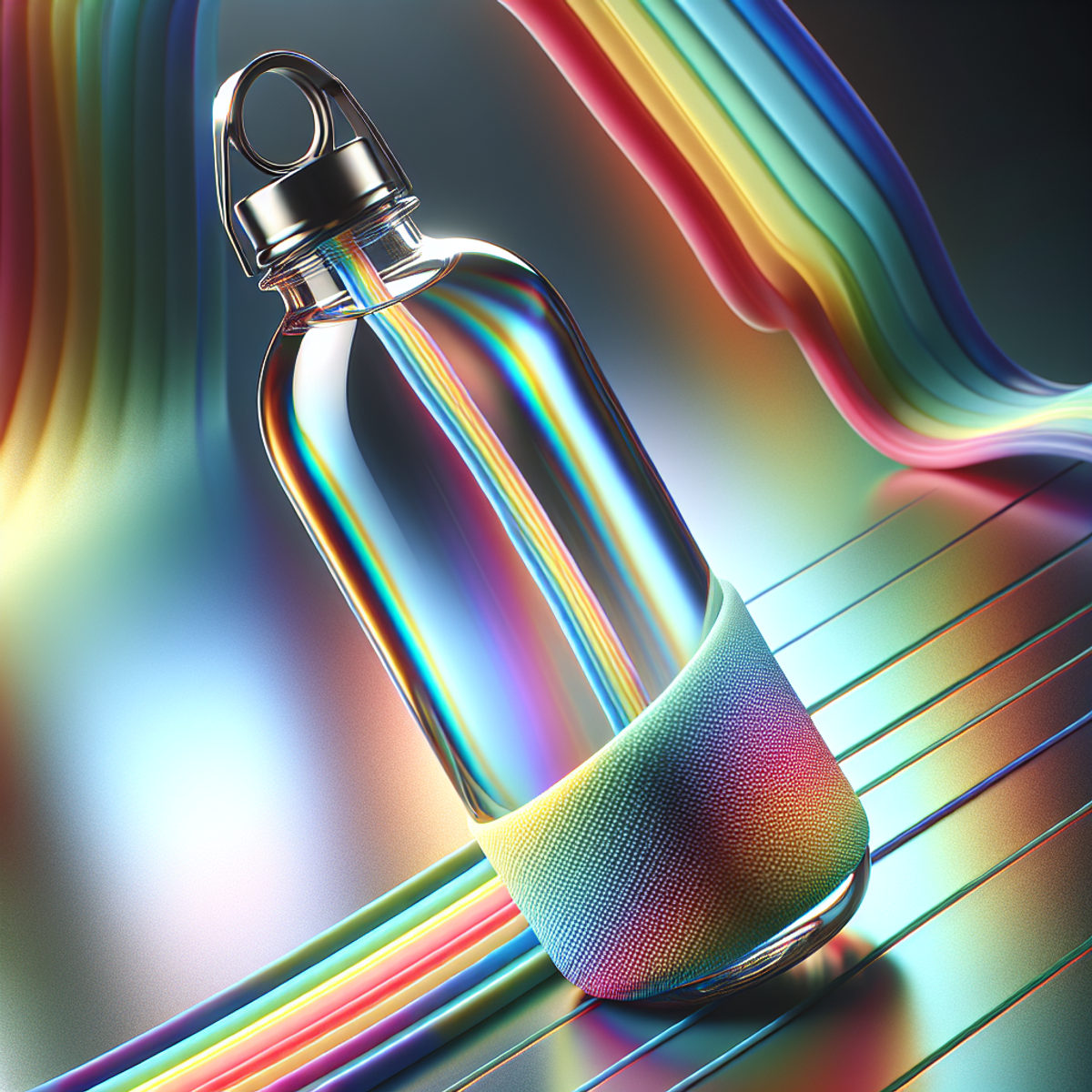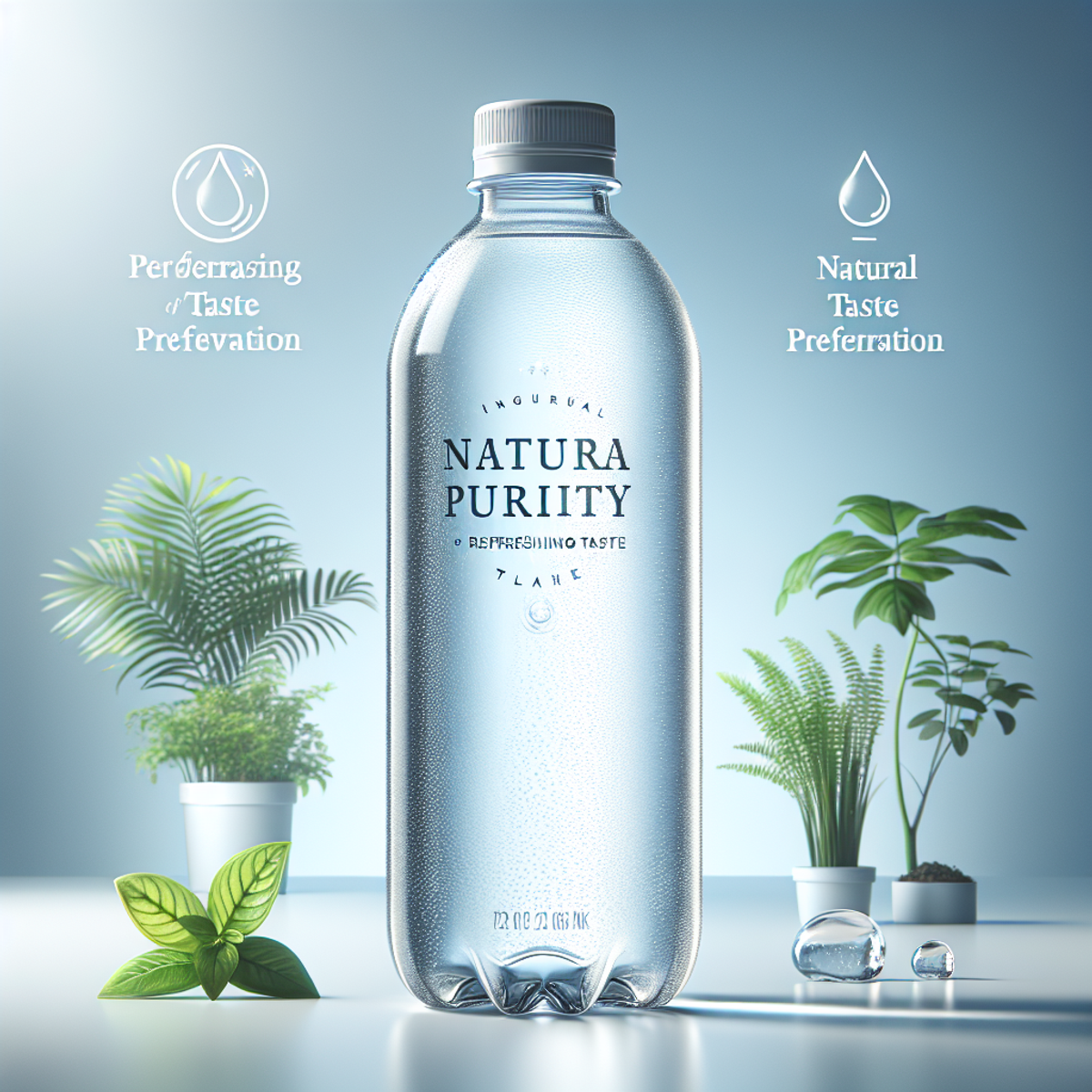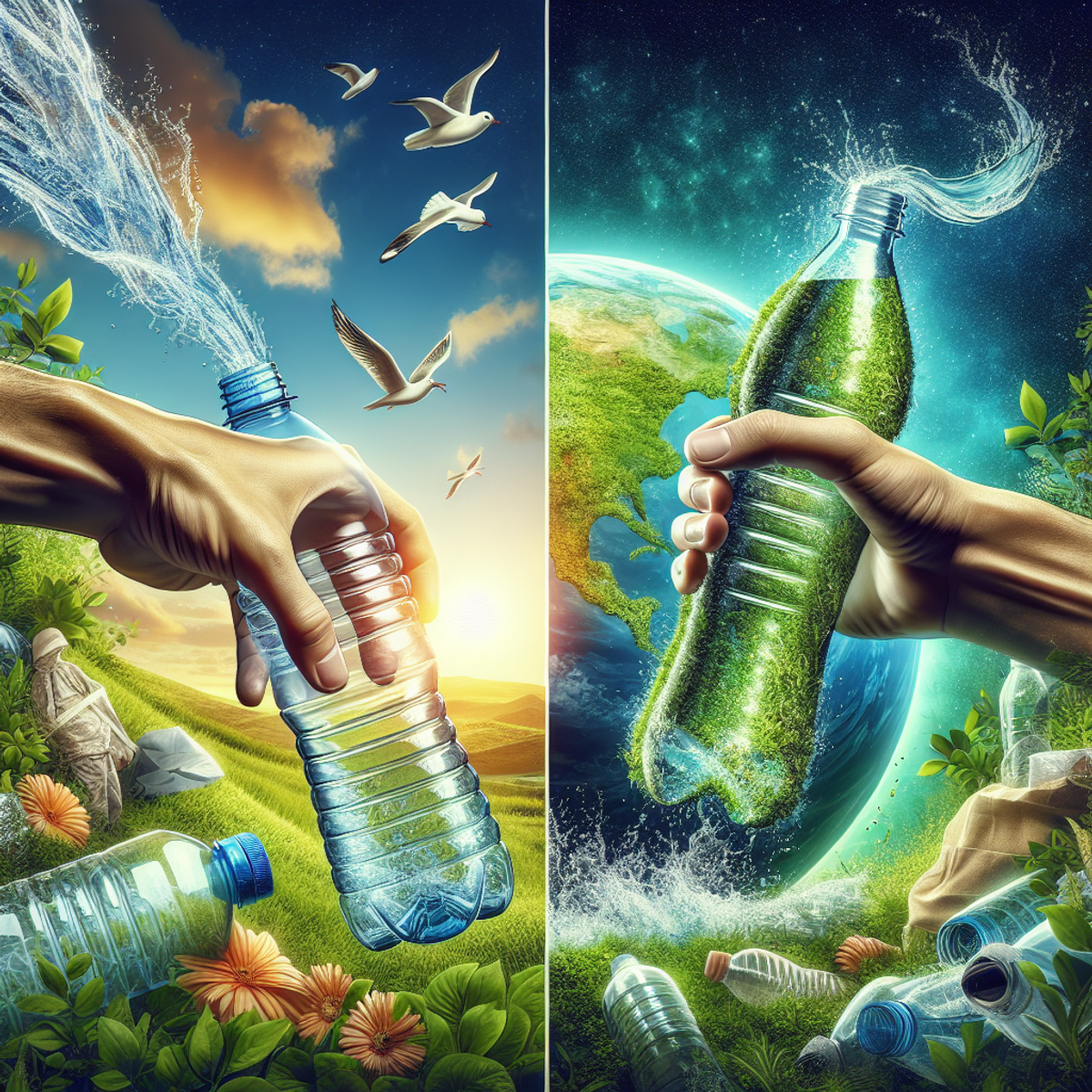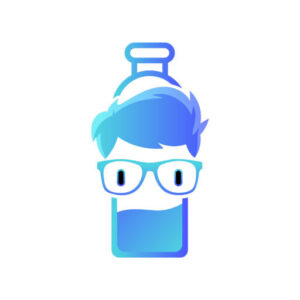Generally, glass water bottles are referred to as non-toxic. As a result, most of us consider non toxic glass water bottle a safe choice for meeting our hydration needs. However, a question might arise “Are Glass Water Bottles Non-Toxic”?
To seek an answer to this valuable query, we have tried to discuss the aspects concerning the safety score of glass water bottles.
So, let’s dive in without any further ado.

Are Glass Water Bottles Non-Toxic?
Safety is the most important factor that we all consider when buying a beverage container. That’s why glass is commonly preferred for making water bottles. Talking about glass as a material, it is non-porous and easy to clean. Both these features make glass hygienic and safe.
However, this isn’t always the case, as certain types of glass contain harmful chemicals. These toxic materials could leach into the water or beverage contained in the glass bottle. Therefore, you need to be careful when choosing a glass bottle.
To know whether the glass bottle is made of food-safe glass, it is imperative to understand what glass is made from.
What is a Glass Made Of?
Glass is a transparent material made from different natural ingredients, including silica (sand), lime (calcium oxide), and soda (sodium carbonate). After being exposed to extremely high temperatures, the mixture converts into glowing liquid.
Once cooled down, the liquid becomes glass. Apart from the above-mentioned ingredients, some glass manufacturers also use lead. The water bottles or jars made from such type of glass aren’t food-safe and might pose some health risks.
Types of Glass Used for a Non Toxic Glass Water Bottle
A food-grade glass bottle is specifically made for consuming water or beverages. Therefore, it is ensured that the materials used for making such glass bottles are food-safe. The glass used for manufacturing a non toxic glass water bottle must meet particular safety regulations.
According to FDA guidelines, glass water bottles are considered food safe if they are made of specific types of glass, including:
- Type I Borosilicate Glass
- Type II Treated Soda Lime Glass
- Type III Soda Lime Glass
1. Type 1: Borosilicate Glass
This type of glass is commonly used for glass water bottles and jars. It is made of Boron oxide, sand, and soda ash. Borosilicate glass is non-porous, which means water bottles made from it won’t absorb odors or flavors. Hence, this type of glass is highly suitable for manufacturing a non toxic glass water bottle.
2. Type 2: Treated Soda Lime Glass
It is another type of food-safe glass, which is treated to prevent leaching and staining. Hence, the glass water bottles made from Treated Soda Lime glass are non-toxic and food-safe.
3. Type 3: Soda Lime Glass
This particular type of glass is also food-grade. Since it is non-porous, the water bottle made from this glass doesn’t absorb flavors or colors from beverages. So, it might be considered as a non toxic glass water bottle. However, soda lime glass is not suitable for hot drinks.
Are Glass Water Bottles BPA Free?
BPA is a chemical found in certain resins and plastics. This material is considered toxic, as it tends to cause various health issues. Glass proves to be a safe alternative to plastic, as it is usually BPA-free. So, most of the glass water bottles are safe to use.
However, certain types of glass water bottles might contain a thin BPA coating. This is done to make these glass bottles more durable. If you prefer a non-toxic glass water bottle, do consider buying one that is labeled as “BPA-free.”
How Do I Know If a Glass Water Bottle is Non-Toxic?
When it comes to finding glass water bottles that are food-safe, you need to be careful while making a choice. Normally, a non toxic glass water bottle is made using specific standards approved by the FDA.
A food-grade glass water bottle should be free of arsenic, cadmium, lead, BPA, or other toxic materials. In addition, the glass water bottle you are buying must be free of chemical coatings or treatments. This is so, as most of the laminates, coatings, or glazing materials might contain toxic chemicals.
Apart from this, you also need to check the website of your glass bottle’s manufacturer. Most of the top-rated glass bottle manufacturers clearly mention whether their products are non-toxic.
To confirm that a glass water bottle is food-safe, make sure to find a label saying “USDA Approved.” This suggests that the glass water bottle or jar is approved by the United States Department of Agriculture for beverages and food.
Benefits of Using a Non Toxic Glass Water Bottler
Using a non-toxic glass water bottle is beneficial in many ways. A few of the most prominent advantages are listed below:
- Glass water bottles are nonporous, which means odors, flavors, or harmful chemicals can’t leach into your beverage.
- Water bottles made of glass are recyclable, which makes them environmentally friendly.
- Although glass is a fragile material, it lasts longer than plastic if kept safe from falling down. This is why most of the glass water bottles are covered with silicon sleeves.
- Glass water bottles are safe to use in microwaves and ovens. Besides, most of these bottles are dishwasher safe too.
- Water bottles made of glass are easy to clean, as they don’t absorb food particles or get stained easily.
Final Words
The first thing you need to understand is that glass water bottles are made of different types of glass. So, we can’t consider a water bottle non-toxic until we are sure that it is made of food-grade glass.
So, the answer to our question, “Are Glass Water Bottles Non-Toxic” depends on the glass used for the manufacturing of a water bottle. If a water bottle is made of food-grade glass and there is no harmful coating, it is referred to as a non-toxic glass water bottle.
Also, you must ensure that the glass water bottle you are using meets certain safety standards set by the FDA. So, when buying a non toxic glass water bottle, find one that is labeled as food-safe.

